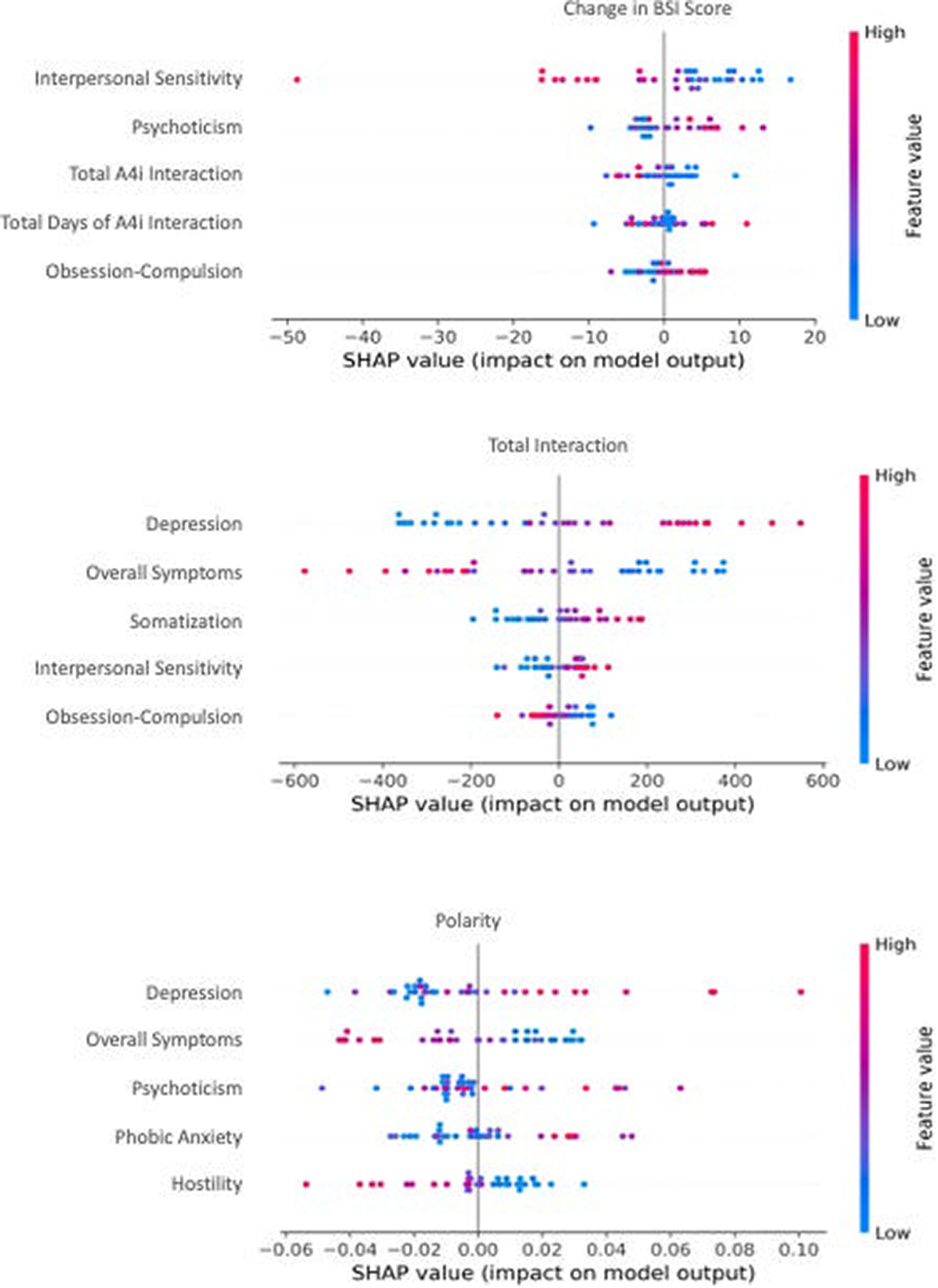
Predicting Symptom Response and Engagement in a Digital Intervention Among Individuals with Schizophrenia and Related Psychoses
Abstract
Despite existing work examining the effectiveness of smartphone digital interventions for schizophrenia at the group level, response to digital treatments is highly variable and requires more research to determine which persons are most likely to benefit from a digital intervention. The current work utilized data from an open trial of patients with psychosis (N = 38), primarily schizophrenia spectrum disorders, who were treated with a psychosocial intervention using a smartphone app over a one-month period. Using an ensemble of machine learning models, pre-intervention data, app use data, and semi-structured interview data were utilized to predict response to change in symptom scores, engagement patterns, and qualitative impressions of the app. Machine learning models were capable of moderately (r = 0.32–0.39, R2 = 0.10–0.16, MAEnorm = 0.13–0.29) predicting interaction and experience with the app, as well as changes in psychosis-related psychopathology. The results suggest that individual smartphone digital intervention engagement is heterogeneous, and symptom-specific baseline data may be predictive of increased engagement and positive qualitative impressions of digital intervention in patients with psychosis. Taken together, interrogating individual response to and engagement with digital-based intervention with machine learning provides increased insight to otherwise ignored nuances of treatment response.